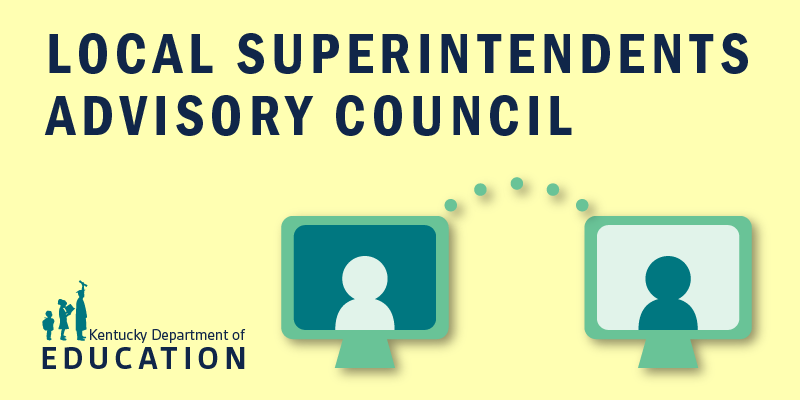
Gov. Steve Beshear, First Lady Jane Beshear, KBE chairman David Karem and Commissioner Terry Holliday celebrate the “Graduate Kentucky” initiative to raise the compulsory attendance age for students to 18 or diploma completion.
Photo by Tim Thornberry, Aug. 8, 2013
By Matthew Tungate
matthew.tungate@education.ky.gov
Raising the compulsory school age from 16 to 18 has been the Kentucky Board of Education’s top legislative priority for many years, but no one expected it would be accomplished two weeks after the enabling legislation, Senate Bill 97, took effect.
Senate Bill 97 required 96 districts to adopt a policy to keep students in school until they turn 18 or graduate to trigger statewide implementation within four years. To date, 122 districts have adopted the measure which will take effect in those districts in the 2015-16 school year. It becomes mandatory for the other 51 districts no later than the 2017-18 school year. They do have the option of passing a policy and implementing it earlier.
Gov. Beshear told the Kentucky Board of Education at its meeting last week that getting the requisite number of districts to trigger a statewide policy truly was a “blitz” — playing off the “Blitz to 96” initiative Gov. Beshear, First Lady Jane Beshear and Education Commissioner Terry Holliday launched to encourage school districts to amend their attendance policies sooner rather than later.
“When you think in two weeks this has happened…,” Gov. Beshear said, his voice trailing off with emotion.
The first lady, a former teacher, told the board that she and her husband kept track of how many districts passed the higher age requirement even when they were on vacation.
“This could not have happened had it not been for the strong support of this board,” she said.
Board chair David Karem thanked the Governor and First Lady for being “unbelievable in your commitment to this issue.”
Gov. Beshear noted the improvements in education in the last five and a half years, including Kentucky being the first state to adopt national English/language arts and mathematics standards.
“We’re leading this county in education, and we don’t need to stop now,” he said. “We don’t need to take our foot off the gas pedal.”
The board, moments after Gov. Beshear’s comment, cleared the way for the Next-Generation Science Standards (NGSS) to move forward in the regulatory process. The board approved the Statement of Consideration for 704 KAR 3:303, which calls for the new science standards to be included in the Kentucky Core Academic Standards without changes. The Statement of Consideration included nearly 4,100 public comments received on the regulation.
Board members also voted at the meeting to amend the attendance policies for the state-run Kentucky School for the Blind and the Kentucky School for the Deaf to require students to attend school between the ages of 6 and 18 to align with Senate Bill 97. Under the current law, students who attend special state schools are exempt from the state’s compulsory attendance policies.
“It’s certainly consistent with the success we’ve been able to celebrate on this historic day,” said Johnny Collett, director of the Division of Learning Services.
During a reception later at the State Capitol for the 120 districts to that day that had increased the dropout age, Commissioner Terry Holliday said every major newspaper in New York had called to find out how Kentucky is doing what it’s doing.
“Leadership, vision,” he said, pointing to the Governor and First Lady. “Leadership, vision and hard work,” he said, pointing the collected school officials.
Now, Holliday said, we need to figure out how to get districts the resources they need to keep the progress going.
“You now know where the State Capitol is,” he said. “I want to see you here in January for the needs of children.”
Funding was a theme throughout the two-day state board meeting. During a work session the day before the meeting, Associate Commissioner Hiren Desai told the board the full effect of sequestration still has not been felt as districts have been skillful at redirecting funds to largely mitigate the impact at the classroom level. Additionally, they are operating with a $140 million carryover of federal funds from the previous year, he said. Desai predicted sequestration will hit hard in spring 2014, especially given prior state cuts.
Board member Brigitte Blom Ramsey, who later was voted the board’s vice chair, said the state has raised expectations with the implementation of Senate Bill 1 (2009), but “we are not funding what we need to for students to meet higher expectations, and that is a recipe for failure.”
Vice chair Roger Marcum, who later was voted chair, urged educators to speak up about the impact of funding cuts on them and their ability to educate the state’s children.
“We’ve got to stand up for the kids of the commonwealth, and the resources aren’t there,” he said.
In other business, the board gave a first reading to a regulation outlining requirements for early high school graduation.
Criteria for early graduation require the student to:
- score proficient on the end-of-course exams required as part of the state’s assessment and accountability system
- meet the college-readiness exam benchmarks established by the Council on Postsecondary Education
If approved, the regulation would take effect in the 2014-15 school year. It would allow districts to keep half of the state-allotted funding for students who graduate early while giving the student the other half as a scholarship, and allow students to receive a fourth year of Kentucky Educational Excellence Scholarship (KEES) money if they graduate in three years.
In other items, the board:
- discussed the Teaching, Empowering, Leading and Learning Kentucky (TELL) Kentucky survey results and possible policy implications
- received results of surveys and focus groups from participants in the field test of the Professional Growth and Effectiveness System (PGES)
- approved 704 KAR 3:390, Extended School Services, which incorporates the new assessment and accountability system into the funding formula, and rewards academic achievement
- approved the Statement of Consideration for 702 KAR 7:065, Designation of Agent to Manage Middle and High School Interscholastic Athletics with one change. The board removed a provision that would prohibit students who have been retained from participating in middle school competitions. That provision will be considered by the Middle School Advisory Committee that will be created by the revised regulation.
- approved a regulation governing new minimum requirements for local board of education training that include specific training on ethics, school finance and superintendent evaluation
- appointed parent Brandi Hitzelberger to the Kentucky School for the Blind (KSB) Advisory Board
- appointed Emilee Morgan, instructional coordinator at Camden Station Elementary School (Oldham County) to the Kentucky Writing Program Advisory Committee
- approved the Carl D. Perkins Career and Technical Education State Plan for FY14
The next Kentucky Board of Education meeting is scheduled for Oct. 8 in Frankfort.




Leave A Comment